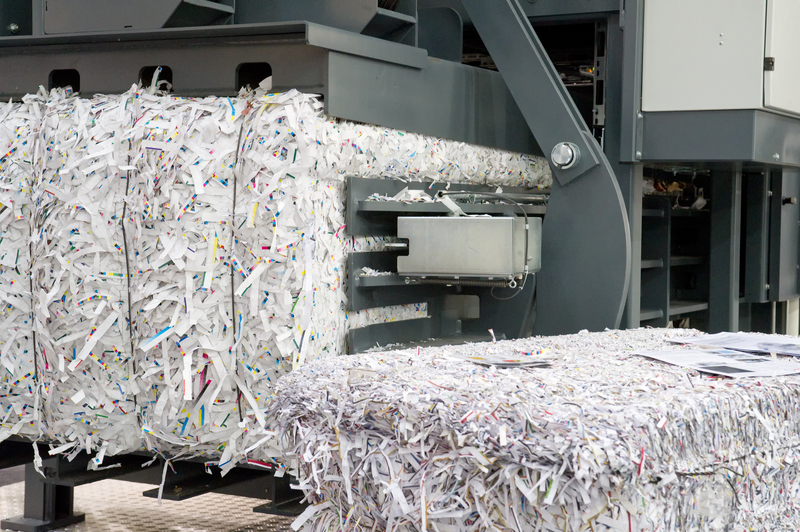Delving Into the Builders Skip: A Crucial Construction Element
In the world of construction, efficient waste management is essential for site safety, productivity, and environmental compliance. One indispensable element that often goes overlooked is the humble builders skip. This robust container, universally recognised on construction sites across the UK and beyond, streamlines debris removal and enables construction projects to run smoothly. Let's take an in-depth look at builders skips, why they're vital, and how you can make the most of them for your next building endeavor.

What Is a Builders Skip?
A builders skip is a large, open-topped waste container designed for loading onto a special type of lorry. It is primarily used on construction and renovation projects for the quick and safe disposal of building materials, waste, and rubble. Builders skips are an everyday sight on building sites, residential renovations, and demolition projects alike.
Key Characteristics of Builders Skips
- Capacity: Builders skips come in various sizes, usually ranging from 6 to 12 cubic yards.
- Durability: Constructed from heavy-duty steel to withstand rough usage and the weight of concrete, bricks, and timber.
- Accessibility: Open-topped to allow easy loading by hand or with machinery.
- Mobility: Designed for swift collection and drop-off using skip lorries.
Why Are Builders Skips So Important?
The builders skip plays a pivotal role in every stage of a construction project. Here's why:
Efficient Waste Management
Construction and demolition activities inevitably generate large volumes of waste, from broken bricks to packaging materials. Proper waste management is not just about keeping a clean site--it's crucial for safety, environmental protection, and compliance with local regulations. Builders skips ensure a centralised, contained location for all waste, which is then promptly removed by licensed waste carriers.
Benefits of Using a Builders Skip
- Safety: Keeps debris and hazardous materials off the ground, reducing trip hazards and injury risks.
- Time-Saving: Minimises downtime by providing an immediate rubbish disposal solution.
- Cost-Effective: Single-point collection and removal of waste lead to lower overall disposal costs.
- Regulatory Compliance: Ensures proper segregation, storage, and disposal of waste as mandated by environmental and building regulations.
- Site Organisation: Promotes an uncluttered and orderly workplace.
Types of Builders Skips and Their Uses
There's no one-size-fits-all skip. Understanding the various builders skip types helps you select the ideal one for your project:
Mini Skips
- Typically 2-3 cubic yards in capacity.
- Ideal for small renovations or garden clean-ups.
- Fits easily in tight spaces or driveways.
Midi Skips
- 4-5 cubic yards, commonly used for kitchen or bathroom renovations.
- Handles moderate volumes of rubble, timber, or plasterboard.
Builders Skips (Standard)
- 6-8 cubic yards--this is the classic "builders skip" seen on most building sites.
- Best for most residential and commercial building projects.
- Suitable for heavy materials like soil, concrete, and bricks.
Larger Skips
- 10-12 cubic yards or more--these are considered "maxi skips."
- Better for large demolitions, shop or office refits, or bulky lighter waste.
- Not usually suitable for soils or hardcore due to weight limits.
Choosing the Right Builders Skip for Your Project
The success of your waste disposal largely hinges on selecting the optimal skip size and type. Here's how to match the skip to your needs:
- Project Scope: Estimate the volume of waste your project will generate. Overfilling a skip can incur extra charges or require a second skip.
- Waste Type: Consider what you'll be disposing of--heavy materials require a sturdier, lower-capacity skip, while lighter waste can go in larger containers.
- Access: Ensure your site is accessible to skip lorries and there's adequate ground for the skip to be delivered and removed.
- Local Regulations: In some cases, you may need a permit for placing skips on public roads or pathways.
What Can and Cannot Go Into a Builders Skip?
To make full and legal use of a builders skip hire service, it's important to know what materials are permitted:
Permitted Waste
- Bricks, concrete, rubble, stones
- Timber, wood, pallets
- Metals and wiring
- Packaging and plastics
- Soil and garden waste (subject to local rules)
- Plasterboard (sometimes requires separate skips)
Prohibited Items
- Asbestos materials--require specialist disposal
- Electrical items and appliances
- Batteries and hazardous chemicals
- Tyres, gas cylinders, and pressurised containers
- Paints, solvents, and adhesives
Always consult your skip provider for a full list of items to avoid expensive penalties and ensure legal compliance.
Hiring a Builders Skip: What You Need To Know
Arranging a builders skip hire is a straightforward process, but a little preparation can save time and money:
Step-by-Step Guide to Hiring a Builders Skip
- Assess Your Project: Estimate the skip size and duration needed.
- Choose a Licensed Provider: Ensure the company is reputable and registered with the Environment Agency.
- Book Your Skip: Reserve delivery in advance, especially during busy seasons.
- Arrange Permits If Needed: Local councils often require permits for skips placed on public land.
- Plan Access: Clear the area for drop-off and collection. Check that gates or driveways are wide enough.
- Waste Disposal: Load waste evenly and avoid overfilling the skip--materials must not exceed the rim.
- Collection and Disposal: The provider collects and processes the waste, recycling as much as possible.
Best Practices for Using Builders Skips on Construction Sites
Leveraging your builders skip efficiently can boost site safety, cut costs, and speed up your project:
- Location Matters: Place the skip as close to your work area as possible while ensuring safe access for vehicles and workers.
- Segregate Waste: Use multiple skips for different materials--e.g., one for rubble and another for wood or packaging.
- Don't Overfill: Overfilled skips can be dangerous and may incur surcharge fees. Keep loads below the skip's rim.
- Team Awareness: Brief your team on permitted and prohibited materials to avoid contamination or penalties.
- Reuse and Recycle: Salvage reusable materials where possible and recycle to reduce landfill impact.
The Environmental Impact of Builders Skips
With growing concerns about landfill waste and sustainability in construction, the builders skip is at the heart of eco-friendly waste management:
- Improved Recycling: Many skip providers now separate and recycle a high percentage of waste collected, reducing landfill and the demand for raw materials.
- Regulatory Compliance: Using registered skip hire firms ensures waste is processed according to environmental standards.
- Reduced Carbon Footprint: Efficient waste collection minimises site vehicle movements and emissions.
By choosing reputable and environmentally conscious skip providers, construction businesses not only comply with waste laws but also strengthen their corporate sustainability credentials.

FAQs: Everything You Wanted to Know About Builders Skips
1. How long can I keep a builders skip on my property?
Most skip companies offer flexible hire periods, from a few days to several weeks. If you need an extended rental, it's best to arrange this at the booking stage.
2. Do I need a permit for my builders skip?
If your skip is placed on a public road or pavement, a permit is usually required from the local council. If it's on private land (like a driveway), no permit is needed.
3. Can I mix all types of waste in one skip?
General builders skips permit most construction and household debris, but hazardous or specialist materials (like asbestos, plasterboard, or electrical items) may require separate disposal arrangements.
4. How much does builders skip hire cost?
Prices vary depending on skip size, location, hire period, and waste type. Always get a few quotes before booking and check what's included--like permits, delivery, and collection fees.
5. What happens to my waste after collection?
Reputable skip companies transport waste to licensed recycling centres. The waste is sorted, with recyclable materials extracted and non-recyclable waste disposed of responsibly.
Conclusion: The Builders Skip - A Silent Hero of Construction Sites
Builders skips may not get the attention that cranes or diggers do, but they're just as essential to any successful construction project. From safe and efficient debris management to enabling greener building practices, the role of the builders skip is crucial. Whether you're a seasoned contractor or a homeowner embarking on a renovation, understanding the ins and outs of skip hire, usage, and best practices will make your project smoother, safer, and more cost-effective.
Next time you see a builders skip on a worksite, remember: it's more than just a metal box--it's a key player in turning blueprints into finished projects, safely and sustainably.